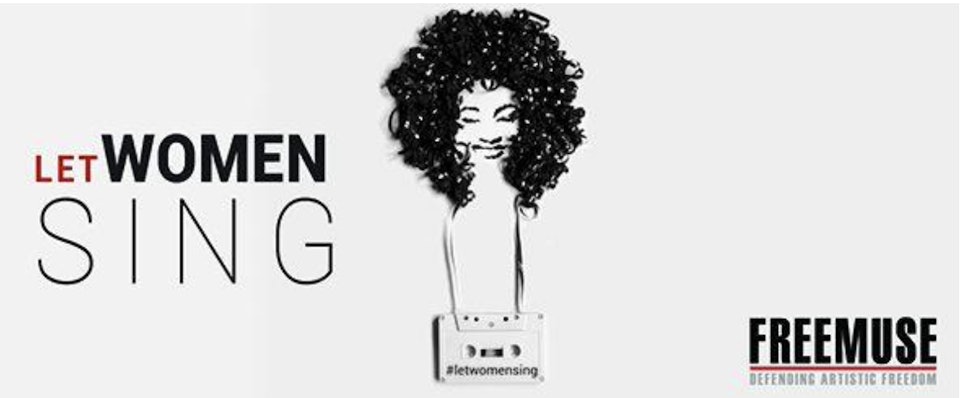Featured Organization
Freemuse
Europe

With secretariat offices in Oslo and Copenhagen, Freemuse is an international human rights organization that defends freedom of artistic expression. It operates on a belief in the transformative power of artistic expression and the importance of the principles of accountability, participation, equality, non-discrimination and cultural diversity. Through boundless evidence-based advocacy and documentation at international, regional, and national levels, they have established themselves as a global defender of freedom of artistic expression and human rights.

Freemuse was founded in 1998 following the 1st World Conference on Music and Censorship. The organization’s founders, which included artists and human rights defenders alike, united under a shared aspiration to transform the Conference into a daily mission to be pursued on an international scale. This considered, Freemuse was initially developed with a specific focus on musicians experiencing censorship––however, in 2011, Freemuse expanded its work to encompass freedom of expression across all artistic mediums. In the same year, Freemuse released their Advocacy and Campaign Guide, a comprehensive resource that provides advice and concrete actions which advocates and artists can take to safeguard creative expression and fight censorship. The guide offers a background on human rights conventions as well as practical information and instructions for seeking asylum, navigating legal disputes, and developing a campaign to fight censorship.
Freemuse also operates the Global Action Network (GAN), a recently launched initiative that aims to create a global coalition of organizations, institutions, and advocates united under the goal of protecting artistic freedom and defending artists at risk. Like ARC, the Global Action Network (GAN) was conceived based on the fact that many NGOs, artists, and activists that fight for freedom of artistic expression have limited resources. By mobilizing communities, organizations, and groups to combine efforts and information wherever possible, their collective work grows in capacity and becomes more achievable.

In their day-to-day work, Freemuse uses a combination of research, advocacy, and activism to uphold international human rights conventions of free expression and advocate for artists who have had these freedoms obstructed. Through the use of thorough research and documentation, they ensure that violators of artistic freedom are monitored, exposed, and held accountable. This includes campaigns for the release of imprisoned artists, advocacy on behalf of artists facing active or potential threats to free expression, and the application of pressure on governments or legislative bodies that actively generate or perpetuate such threats. They also give press conferences, publish reports, and host lectures, all of which contribute to their status as an international source of information and action surrounding artistic expression. Their research culminates each year in the release of the State of Artistic Freedom, an annual report that documents global violations of artistic freedom. Through this human rights-based framework of activism and accountability, Freemuse aims to address “root causes” of government oppression rather than symptoms––enabling them to effectively and efficiently target abuses of power as they emerge, and ensure that free artistic expression is accessible to all people across the world.

On top of advocating on artists’ behalf, Freemuse also acts as a direct support system by connecting them to resources and aid. Through partnerships with safe havens and artists residencies, such as SafeMUSE and ICORN, they help artists who are forced to relocate by connecting them to stable and supportive environments in which they can continue their work. In a limited number of cases, Freemuse can also provide direct financial assistance to those in need. Fees can be used to cover medical expenses following a physical attack, legal costs in cases where an artist is unjustly imprisoned or detained, or relocation costs in the event that an artist faces threats and must flee their country of residence.
In addition to assisting and advocating for artists at risk, Freemuse works more structurally to advocate for positive societal and legislative change to both uphold and further the international human rights conventions of free expression. They work in tandem with international bodies such as the United Nations Human Rights Council and UNESCO (with both United Nations Special Consultative Status to the Economic and Social and Consultative Status with UNESCO) to safeguard the universal freedom of artistic expression and ensure accountability by international bodies and governments that violate this freedom. Their extensive process of research and documentation allows them to effectively pressure governments and legislative bodies to reform repressive laws and practices that encroach on artistic freedom and expression.

For over twenty years, Freemuse has worked tirelessly to ensure that artists across the world have the freedom to express themselves through their work––and they have proven their commitment to advocacy and accountability in cases where this freedom is violated. ARC is grateful for its ongoing collaboration with Freemuse, who we regularly work with when connecting artists to support, organizing events, conducting advocacy, and more. Freemuse is also a member of the Amani: Africa Creative Defence Network. If you would like to contribute to Freemuse’s invaluable defense of artists at risk, you can become a member or make a donation on their website.
By Cobie-Ray Johnson, July 2021.